
Rewind a few years, and your average Australian punter had likely never heard of Chinese electric vehicle (EV) producer BYD. However, the brand’s recent growth in our market has truly been something to behold.
Breaking into the top 10 best-seller list earlier this year (despite only selling battery and plug-in hybrid EVs in select segments), BYD is now planning its next tranche of model releases (it has 38 availabel overseas, not including its sub-brands), targeting some high-volume segments in the process.
Originally selling its cars here through EVDirect – an Australian, third-party importer and distributor – BYD has now taken back the reins, transitioning to a direct-to-market model within Australia from 1 July 2025.
While the move ought to simplify internal processes for BYD – with a possible flow-on effect of reduced costs for buyers in the process – it has also opened the floodgates for models from the brand’s global line-up to be assessed for Australian releases.
The Seagull electric city car, for instance, has just been confirmed for Aussie showrooms where it will be rebadged as the Atto 1, with even more models across large-volume segments also likely to be under consideration.
BYD Australia remains tight-lipped on a full list of Australian releases in 2025 and 2026 but has confirmed a few key models – with others likely locked in and pending announcement.
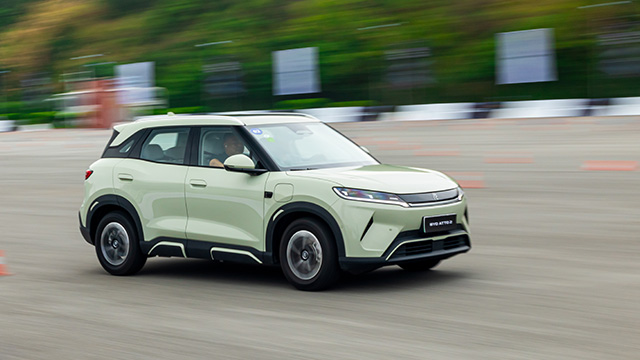
The all-electric Atto 2 small SUV – slotting in size-wise between the smaller Dolphin hatchback and larger Atto 3 SUV – will likely be the first of new nameplates to land here with a slated late 2025 launch.
UPDATE 3 October 2025: The Australian Government's regulatory body has approved the Atto 2 for sale in Australia, all but confirming its arrival. Pricing remains guarded, but we should know more in the coming months.
UPDATE 7 October 2025: It's official! The BYD Atto 2 will join Aussie showrooms from November this year.
We got to drive the Atto 2 in China to get the scoop on how it performs.

Confirmed by the brand's Australia arm in October 2025, the Sealion 5 mid-size SUV will join the line-up in early 2026. As expected, the Sealion 5 will slot in beneath the Sealion 6, Sealion 7 and recently confirmed Sealion 8.
Although local specification remains unknown, the Sealion 5 will be powered by BYD's DM-i plug-in hybrid technology, so expect some pretty frugal fuel economy to boot.
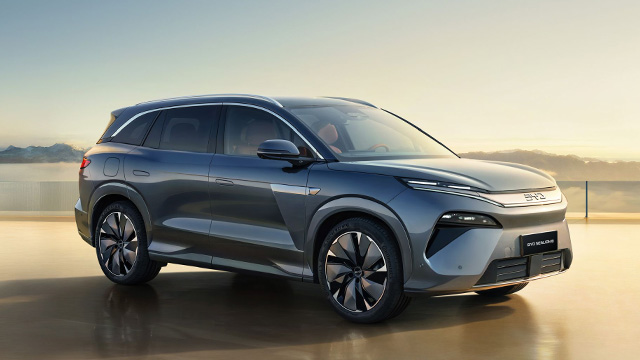
Joining the BYD line-up in early 2026, the Sealion 8, riding on plug-in hybrid platforms, will become the first seven-seat SUV to be offered by the brand Down Under. We’ve laid out all that we know so far about the BYD Sealion 8 here.
UPDATE 7 October 2025: BYD Australia has confirmed an early 2026 arrival for the Sealion 8.
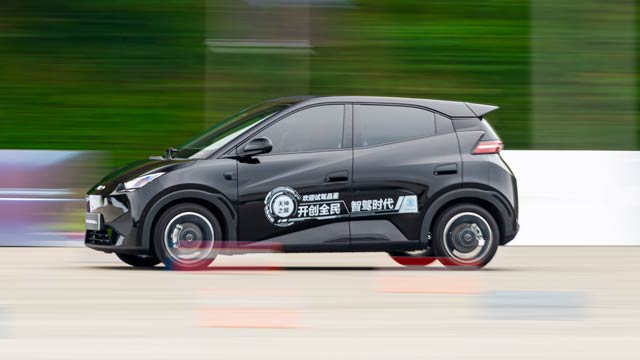
Adorable and affordable, the Seagull city car was no more than a pipedream for Australian buyers until recently.
Back under consideration by BYD as it goes to a direct-to-market model, the pint-sized, all-electric Seagull hatchback could be a winner in Australia but, as we found during our test drive in China , it would need to be carefully specified for our market.
UPDATE 7 October 2025: The Seagull has been confirmed for Australia, but it'll be wearing an Atto 1 badge when it arrives in November of this year. Technical specifications for the Australian-spec remain guarded, but expect it to become the cheapest EV sold Down Under by quite some margin.
Denza, the luxury sub-brand of BYD, is coming to Australia in November of 2025, as confirmed by BYD this month. Its first two models, the B5 and B8 off-road SUVs have been confirmed, with the possibility of more on the way.
Borrowing the most advanced battery and hybrid technology in the BYD stable, and marrying it with more opulent design and fit-out, Denza models looks to offer large servings of performance and premium fit and finish.
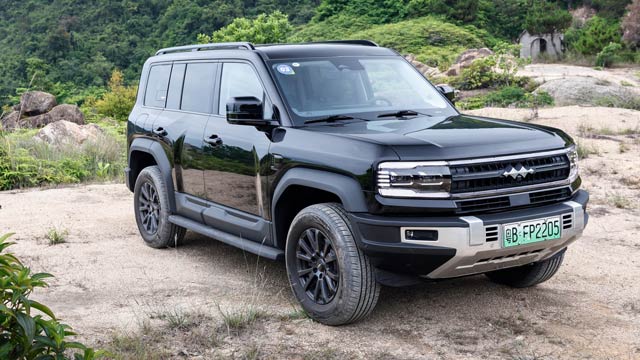
The Fang Cheng Bao 5 high-riding plug-in hybrid SUV has been confirmed for Australia, looking to make waves in the large SUV segment when it arrives rebadged as the Denza B5.
Riding on the same underpinnings as the popular Shark plug-in hybrid ute, the B5 could prove popular here due to a good blend of luxury, performance and (what should be) pretty sharp pricing.
Keen to know what it's like? We got to experience the Denza B5 first-hand in China earlier this year.
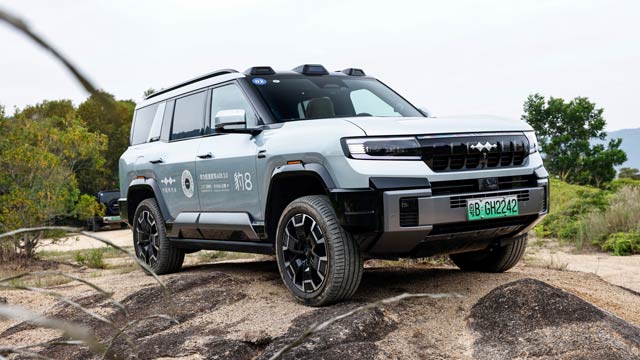
Following on from the B5, the larger, more equipped seven-seat B8 has also been confirmed as a brand-launch model for Denza.
In Australia, the B8 would go after established models like the Toyota LandCruiser 300 and Ford Everest, or even more luxurious versions such as the Lexus GX, given its supreme focus on cabin comfort, luxury and tech.
Other possible sights in Australian showrooms could be: the Z9 GT – a performance wagon (or sedan) packing a ridiculous 710kW; the N9 large SUV – packing luxury and advanced hybrid-electric tri-motor technology, and; the D9 – a van that feels like a plane’s business class cabin inside.
If all the BYD models launches we expect in 2025 and 2026 do come to fruition, then the brand would have an entrant in almost every size segment in Australia.
This would be vastly different to Tesla’s approach, with the brand currently only selling two models (the Model 3 sedan and Model Y mid-size SUV) in Australia; and more like a Kia or Hyundai, which sells battery and plug-in hybrid electric cars in multiple segments.